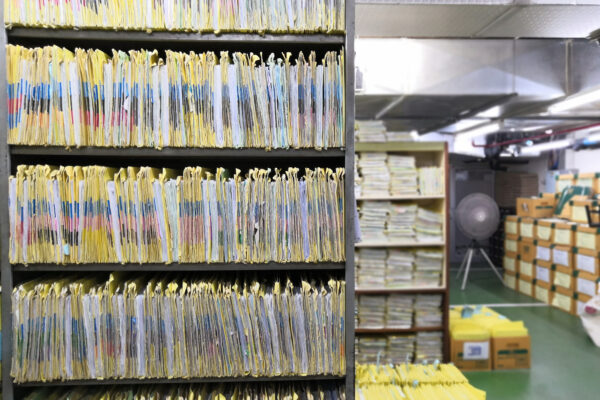Access to public records is a fundamental part of the public’s ability to hold public agencies accountable for their actions. This Sunshine Week, I spoke with attorney CJ Griffin, vice president of the ACLU-NJ Board of Trustees and partner at Pashman Stein Walder Hayden P.C., where she is the director of the Stein Public Interest Center, to discuss the state of transparency and accountability in New Jersey when it comes to the Open Public Records Act (OPRA), a statute that gives the public access to government records and much more. CJ has been litigating matters of transparency and access to police records in New Jersey for nearly ten years and explained why OPRA remains important today and for the future.
KT: What is OPRA?
CG: OPRA is the Open Public Records Act. It is the law that allows members of the public to access public records – documents created by public agencies at all levels, from local towns to the state government. OPRA designates which of those records the public can access and the process by which they can request them from the appropriate records custodian.
KT: Why is it important that the public has access to public records?
CG: It is so critical that we have access to government records, so we don’t have to rely upon government narrative. Public records laws are a foundation to the First Amendment, particularly the freedom of press and the right to petition the government. When an incident occurs, journalists will often receive a press release from the government, and that is the government’s version of what happened or the limited information it wants the public to know. But, often, a public record might provide more or different details, painting a more accurate picture. Public records can also help people be informed about what is happening in government, particularly their local government. What ordinances are they considering? What invoices are being paid? What does the bank balance look like? These are the sorts of records that allow the public to be actively engaged in the community and the policies that are being implemented.
KT: So public records encompass all kinds of things, from emails to invoices?
CG: Certainly – emails are something that shed light on daily operations and what public employees are working on and how they are communicating with each other and the public. OPRA can also involve simpler documents, like a check or vendor registry, so you can see every payment that the public agency is making and to whom. Or town contracts, and the bids for those contracts. Or even salary and payroll and employee reimbursements.
KT: When we’re talking about the public, that means everybody, right?
CG: Yes, OPRA is not limited to New Jersey residents – anyone can file requests. There’s no requirement that you have a particular interest or reason for requesting the records. You don’t have to explain yourself. You don’t even have to say who you are; you can request it anonymously. If a record is subject to OPRA, you can request it as a matter of right. Members of the press, for example, frequently use OPRA because they write stories every day about local and state government, and they want the most accurate information. But it’s so important in this age where we have a diminished press, especially local reporting, that members of the public fill in the gap. Submit those requests, know what’s happening, find out what business public officials are talking about, and hold them accountable. If you find something that you think more people need to know about, flag it for a reporter and let them investigate it.
KT: How can individual New Jerseyans join the fight for transparency and access in New Jersey?
CG: File records requests, show up at public meetings, participate in the public comment period at meetings, file public comments in response to proposed state regulations, write your elected officials about pending legislation, and speak about how you think there is a lack of transparency. Write a letter to the editor and ask for improvements to the open public records laws. In the world of police transparency, there are bills pending that would bring significant improvements. Tell your lawmakers to pass S371 and A996 to bring transparency to police disciplinary records, which are generally barred from public access in New Jersey under OPRA because the Attorney General’s Internal Affairs Policy renders them confidential.


